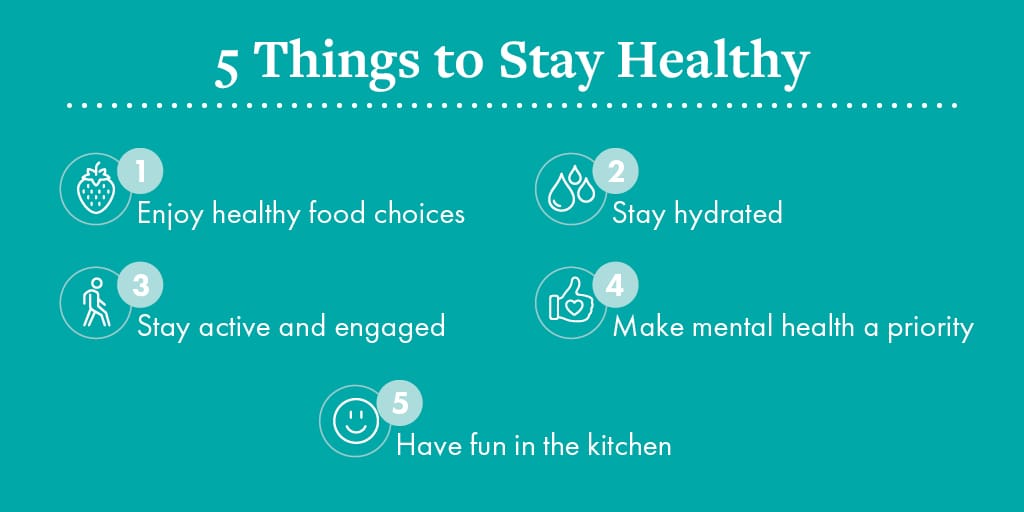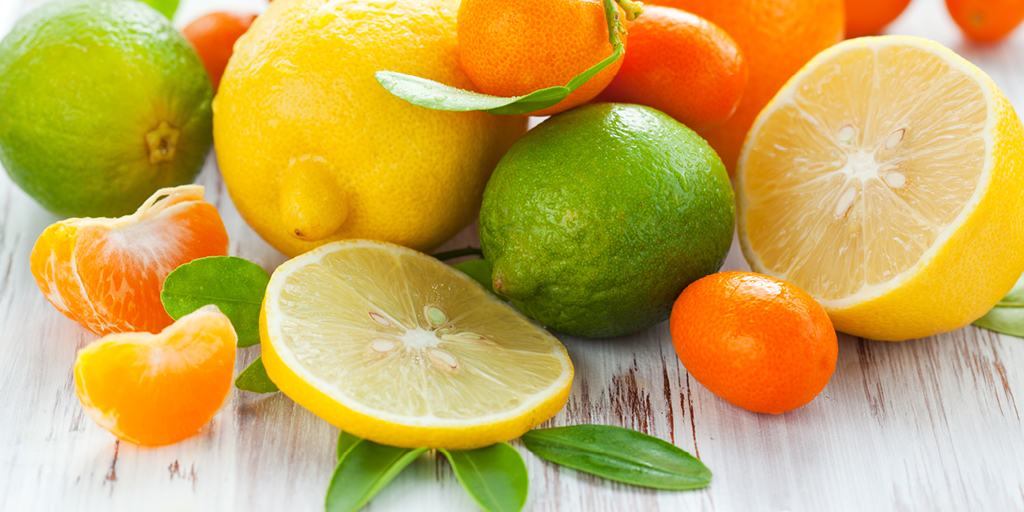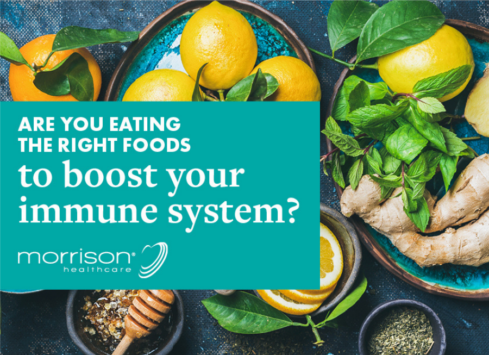Are you eating the right foods to boost your immune system?
Taking care of our health seems to be a priority as we continue to navigate this pandemic. Being a registered dietitian, whenever I have a chance to interact with family, friends, and coworkers, I am often asked if there are any foods that can combat the coronavirus. While there is no such thing as a magical recipe, I’d like to share some information about foods that can increase immunity and help fight viruses and bacteria in our bodies.
Proper nutrition and hydration are vital. People who eat a well-balanced diet rich in fresh and unprocessed foods tend to be healthier with stronger immune systems and are at a lower risk of chronic illnesses and infectious diseases.
One way to keep your immune system strong is to maintain a balanced diet. According to the Academy of Nutrition and Dietetics, there are five key things you can do to stay healthy:
- Enjoy healthy food choices. Eat plenty of fruits, vegetables, whole grains, legumes, beans, tofu, nuts and seeds, herbs, and spices. Our body uses and absorbs nutrients more efficiently when they come from unrefined whole food sources.
- Be sure to stay hydrated. To stay hydrated is very important because drinking enough water each day is crucial for many reasons, including to regulate the body temperature, keep our joints lubricated, prevent us from infections, help deliver nutrients to cells, and keep organs functioning properly. Being well-hydrated also improves sleep quality, cognition, and mood. Regular water, sugar-free flavored water, and soda water are the best options. A minimum of 8oz 8 glasses of water per day is recommended. Remember the magic number 88 to stay hydrated.
- Stay active and engaged. Get at least 30 minutes of exercise each day to boost your mood, immune system, and heart. Exercise can be divided into 10-10-10 rule, which is 10 minutes in the morning, 10 mins in the afternoon, and 10 mins in the evening. Brisk walking which helps your heart race is considered an exercise rather than a leisure walk. Start with small achievable goals.
- Make mental health a priority. More than ever, think positive! Mindset is vital to getting through this pandemic. Practice positive stress management by walking the dog, calling a friend, taking a shower each day, and refraining from tobacco and alcohol. Some other things that can help you are getting at least 7 hours of sleep each day, having a routine with exercise, meals, TV time, and bedtime. Enjoy your hobbies, read, cook, and resist watching TV mindlessly.
- Have fun in the kitchen; try new healthy recipes and don’t be afraid to experiment with them. Cooking at home helps you eat healthier foods.

A boost to the immune system
There are a few nutrients that have been recognized to boost our immune system such as vitamins A, C, D, E, mineral zinc, probiotics yogurt, and anti-inflammatory garlic, ginger, and turmeric.
Fat-soluble vitamins like:
- Vitamin A which is an anti-inflammatory and antioxidant helps fight viruses and germs in our bodies. Some foods that contain vitamin A in form of beta-carotene are carrots, green leafy vegetables, sweet potato, squash, cantaloupe, and apricots.
- Vitamin D is essential for our body’s immune function. According to a Harvard study, vitamin D is mainly found in fish, eggs, and fortified milk.
- Vitamin E is a fat-soluble vitamin found in nuts, seeds, avocado, and spinach that is key in regulating and supporting immune system function.
The water-soluble vitamin C is thought to increase white blood cell production, which is key to fighting infection. Foods rich in vitamin C are citrus fruits such as grapefruit, lime, lemon, and oranges, as well as kiwi fruit, strawberries, and red and yellow bell peppers.

Zinc is an essential trace element that is crucial for growth, development, and the maintenance of immune function. According to the Centers for Disease Control and Prevention (CDC), zinc is a nutrient that people need to stay healthy. Zinc is found in cells throughout the body. It helps the immune system fight off invading bacteria and viruses. Zinc also helps wounds heal and is important for proper senses of taste and smell. Other foods that provide some zinc include fortified breakfast cereals, beans, nuts, whole grains, and dairy products.
Garlic is a pungent member of the onion family containing several compounds—including allicin—that have antiviral, antifungal, and antibacterial properties. Together, they boost your immune system.
Ginger is filled with immune-boosting benefits and has powerful anti-inflammatory properties. A word of caution: ginger may interfere with blood thinners and diabetes medications, so speak with your doctor before consuming this spice.
Probiotics are defined by the World Health Organization (WHO) as “live microorganisms, which when administered in adequate amounts, confer a health benefit upon the host.” The main benefit of probiotics is that they help restore balance in the intestinal microbiota, playing a defining role in our immune system. Fermented foods include yogurt, kefir, pickles, miso, and sourdough bread to name a few.
Food can be preventative medicine when you eat a diet that provides vitamins, minerals, and gut-friendly options. Eat fresh and unprocessed plant-based foods every day with moderate amounts of fats and oils, less amounts of salt and sugar and you will be healthier and stronger.

